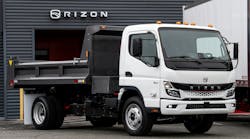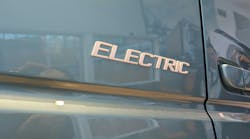Today, July 7, is the last day to submit written comments on proposed changes to the Environmental Protection Agency’s rules governing the design of SCR systems to meet emission requirements. Specifically, the Agency is proposing to “refine” its guidance to manufacturers concerning four areas: the means for warning drivers of a low-level of SCR in the tank; the methodologies and systems used to “induce” drivers to refill the SCR tanks properly and in a timely fashion; the means of identifying and correcting the use of an improper reducing agent, and requirements for the tamper-resistant design of SCR systems.
In its request for comments, the EPA cited several studies of SCR systems and their use, including a study sponsored by the American Trucking Associations (ATA), research by the California Air Resources Board (CARB), a survey done by Cummins Engine and a test conducted on behalf of Navistar by EnSIGHT, Inc. of three 2010 model year SCR-equipped trucks to analyze inducements provided for in EPA certification guidance.
Based upon these studies and other data, the Agency generally expressed satisfaction with the quality, availability and deployment of SCR: “As trucks equipped with SCR systems have been introduced into U.S. commerce, drivers have become familiar with this technology. Current information concerning in use operation of SCR-equipped trucks, including all of the studies and other information…, indicates that warning signals work correctly and that drivers do not wait for SCR-related inducements to be triggered to ensure appropriate and continuing operation of the systems. Specifically, the overwhelming majority of drivers surveyed by CARB, ATA, and Cummins did not wait for activation of warning indicators prior to refilling their DEF tanks and, where warnings did occur, generally did not drive distances long enough to lead to activation of inducements. Further, as the infrastructure for making DEF available becomes even more widespread, drivers will have increased and more convenient access to DEF when they need it.”
Still, the EPA found reasons to tweak their regulatory guidelines further, noting that, “…on-highway heavy-duty diesel SCR systems introduced into commerce to date have been highly successful in inducing operators to refill DEF tanks on a timely basis and to avoid interfering with SCR operation, with a few specific exceptions. At the same time, the Agency believes it is appropriate to refine its guidance, particularly as experience is gained with SCR in-use and as technology advances.”
Comments will be considered and incorporated as deemed appropriate in revised guidelines which the EPA expects to publish later this year.

